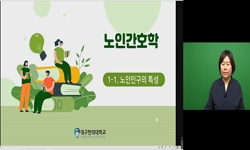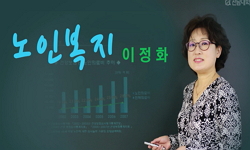본 연구는 노년기 인지저하가 연령과 성별에 따라 어떠한 양상을 보이는지, 그리고 인지기능에 영향을 미치는 요인이 연령집단별로 어떠한 차이가 있는지를 검증함으로써 인지기능 유지와 ...
http://chineseinput.net/에서 pinyin(병음)방식으로 중국어를 변환할 수 있습니다.
변환된 중국어를 복사하여 사용하시면 됩니다.
- 中文 을 입력하시려면 zhongwen을 입력하시고 space를누르시면됩니다.
- 北京 을 입력하시려면 beijing을 입력하시고 space를 누르시면 됩니다.
https://www.riss.kr/link?id=A101148447
- 저자
- 발행기관
- 학술지명
- 권호사항
-
발행연도
2011
-
작성언어
Korean
-
주제어
노인 ; 인지기능 ; 연령차이 ; 성별차이 ; The old ; Cognitive functioning ; Age difference ; Gender difference
-
등재정보
KCI등재
-
자료형태
학술저널
- 발행기관 URL
-
수록면
255-278(24쪽)
- 제공처
- 소장기관
-
0
상세조회 -
0
다운로드
부가정보
국문 초록 (Abstract)
본 연구는 노년기 인지저하가 연령과 성별에 따라 어떠한 양상을 보이는지, 그리고 인지기능에 영향을 미치는 요인이 연령집단별로 어떠한 차이가 있는지를 검증함으로써 인지기능 유지와 인지저하 예방을 위한 함의를 찾는 것을 목적으로 하였다. 분석 자료는 한국고령화패널조사 2차년의 6,437명에 대한 자료를 활용하였고, 분석 방법은 일반선형모형(GLM)과 구조방정식모형의 다중집단분석(Multi-group analysis)을 실시하였다. 연구 결과 노년기 인지기능은 고령노인과 초고령노인 사이에서 급격히 저하되는 것으로 나타났다. 특히 연령이 증가할수록 여성노인에서 더 급격한 인지저하가 나타나, 고령과 초고령에 이를수록 여성노인과 남성노인 간 인지기능 격차가 더 커졌다. 이는 연령과 독립적으로 성별이 인지기능의 위험요인으로 작용함을 의미한다. 다중집단분석 결과, 인지기능에 대한 영향요인이 연령집단별로 유의한 차이가 있었다. 첫째, 친한 사람들과의 만남횟수, 건강상태, 우울, 운동과 같이 변화 가능한 요인들이 본격적인 인지저하가 나타나기 이전인 연소노인 집단에서부터 인지기능에 긍정적으로 작용하였다. 이러한 요인들은 인지기능 유지를 위한 예방적 역할을 하는 것으로 볼 수 있다. 둘째, 중고령 노년기에는 다른 연령기에 비해 건강 관련 요인들이 인지기능에 주요하게 영향을 미치는 것으로 나타났다. 셋째, 고령으로 갈수록 인지저하에 대한 위험요인의 영향력이 점차 커졌다. 주목할 점은 배우자 유무, 만남횟수, 참여모임수와 같은 사회관계적 특성의 영향력이 고령노인 집단에서 가장 크게 나타났다는 점이다. 이는 75세 이상의 고령 노인일수록 공식적·비공식적 관계망에 기반한 활발한 교류가 인지기능 저하를 막는데 중요하게 작용한다는 것을 의미한다. 이상의 연구결과를 토대로 노년기 인지기능에 대한 이해와 인지저하 예방을 위한 이론적·실천적 함의를 논의하였다.
다국어 초록 (Multilingual Abstract)
This study examines whether cognitive functioning among elderly varies by age and gender, and whether risk factors of cognitive functioning vary by three age groups such as, the young old(55-64), the middle old(65-74), and the old old(75+). This paper...
This study examines whether cognitive functioning among elderly varies by age and gender, and whether risk factors of cognitive functioning vary by three age groups such as, the young old(55-64), the middle old(65-74), and the old old(75+). This paper intends to develop useful implications for maintaining cognitive functioning and preventing cognitive declines. Subjects were 6,437 elders aged 55 years and over who participated in the second wave of Korean Longitudinal Study of Ageing. Data were analyzed using the general linear model(GLM) and multi-group structural equation modeling. The key findings are summarized as follows. The decline of cognitive functioning was the most significantly different between the old old and the oldest old. The GLM analysis revealed significant interaction effects between age and gender. The degree of cognitive decline was more remarkable among females than males, indicating that females presented much faster cognitive declines than males with age. The results of multi-group structural equation modeling revealed several differences in risk factors of cognitive functioning across the three age groups. First, some correctable factors, such as friend/neighborhood relations, health status, depressive symptoms, and regular exercise, were positively related to cognitive functioning among the young old. Second, health related factors, such as IADL, depressive symptoms, and regular exercise, presented larger effects on cognitive functioning among the middle old. Third, some factors had a stronger impact on the cognitive functioning as people grow older. Notably, social relations factors, including spouse, friend/neighborhood, and social participation, played a crucial role in the old old. This suggests that active participation in the formal and informal networks is very important for preventing cognitive decline in elderly populations aged 75 and over. The theoretical and practical implications of these findings were discussed.
동일학술지(권/호) 다른 논문
-
- 한국정신건강사회복지학회
- 김노은(Noh Eun Kim)
- 2011
- KCI등재
-
- 한국정신건강사회복지학회
- 김재훈(Jae Hoon Kim)
- 2011
- KCI등재
-
한국어판 정신건강 선별도구(K10,K6)의 타당화 연구
- 한국정신건강사회복지학회
- 김용석(Yong Seok Kim)
- 2011
- KCI등재
-
사회복귀시설 종사자들의 소진에 영향을 미치는 변인의 탐색
- 한국정신건강사회복지학회
- 김이영(Yi Young Kim)
- 2011
- KCI등재






 DBpia
DBpia







